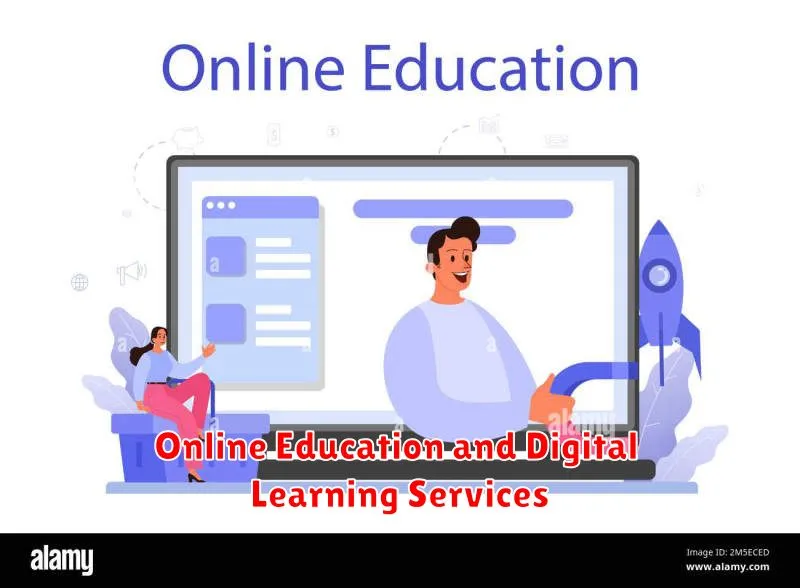In the ever-evolving landscape of the business world, staying ahead of the curve is paramount to success. This article explores key business trends you should be watching closely in the coming year. We delve into crucial areas impacting market strategies, technology adoption, and economic forecasts, providing you with insightful analysis to navigate the complexities of the modern business environment and make informed decisions for future growth. Discover the top trends shaping the future of business and gain a competitive edge by understanding these critical developments.
Emerging Industries with High Growth Potential

Several industries are poised for significant growth in the coming year. Renewable energy, driven by increasing environmental concerns and government incentives, presents substantial opportunities. This includes solar, wind, and other sustainable energy sources, as well as related technologies like energy storage and smart grids.
The Artificial Intelligence (AI) and Machine Learning (ML) sectors continue their explosive growth. AI applications are expanding across numerous industries, from healthcare and finance to manufacturing and transportation, creating demand for skilled professionals and innovative solutions.
Biotechnology and pharmaceuticals are also expected to see substantial expansion. Advances in genomics, personalized medicine, and drug discovery are driving investment and innovation, leading to new treatments and therapies.
The space industry is experiencing a renaissance, with private companies leading the charge in space exploration and commercialization. This includes satellite technology, space tourism, and the development of new space-based infrastructure.
Finally, the cybersecurity sector is vital, as digital threats continue to evolve. With increasing reliance on technology, the need for robust cybersecurity solutions and skilled professionals will only intensify.
The Rise of Green and Sustainable Businesses
Sustainability is no longer a niche market; it’s a mainstream expectation. Consumers are increasingly demanding eco-friendly products and services, driving a significant rise in green and sustainable businesses. This trend is fueled by growing environmental awareness and a desire for ethical consumption.
Companies are responding by adopting sustainable practices across their operations, from sourcing materials responsibly to reducing their carbon footprint. This includes incorporating renewable energy, minimizing waste, and improving energy efficiency. Innovation in green technologies is also accelerating, creating new opportunities for businesses.
Investing in green initiatives is not only ethically sound but also financially beneficial. Companies with strong sustainability records often attract more investors and customers, enhancing their brand reputation and potentially improving their bottom line. The future of business is undeniably intertwined with environmental responsibility.
Regulations promoting sustainability are also becoming stricter globally, further incentivizing businesses to adopt greener practices. Failure to adapt to this trend could lead to significant penalties and reputational damage.
Remote Work and Freelance Economy Expansion
The remote work and freelance economy continues its rapid expansion, driven by technological advancements and evolving workforce preferences. This trend presents both opportunities and challenges for businesses.
Increased flexibility and access to a wider talent pool are key advantages. Businesses can tap into a global network of skilled professionals, reducing geographical limitations and potentially lowering operational costs. However, managing remote teams effectively requires robust communication strategies, clear expectations, and the adoption of suitable project management tools.
Legal and compliance considerations are also significant. Businesses need to ensure they adhere to relevant labor laws and regulations in various jurisdictions where remote workers are located. Furthermore, fostering a strong company culture and maintaining employee engagement in a distributed workforce necessitates careful planning and proactive measures.
Investing in robust communication and collaboration technologies is crucial. This includes platforms that enable seamless project management, video conferencing, and instant messaging, promoting effective teamwork across geographical boundaries.
The future of work is increasingly decentralized, and businesses that adapt to the growing demand for remote work and freelance opportunities will be best positioned for success. Understanding and effectively managing this trend will be paramount for competitiveness in the coming year.
The Influence of AI and Automation
Artificial intelligence (AI) and automation are rapidly transforming the business landscape. Businesses should watch for increased adoption of AI-powered tools for tasks like customer service, marketing, and data analysis. This will lead to increased efficiency and productivity.
Automation of routine tasks frees up human employees to focus on more strategic and creative endeavors. However, businesses must also consider the ethical implications and potential for job displacement, requiring proactive strategies for workforce adaptation and reskilling.
The integration of AI and automation necessitates investments in new technologies and training for employees. Businesses that embrace these changes effectively will gain a competitive advantage, while those that lag behind risk falling short.
Data security and privacy become paramount with the increased reliance on AI and automation. Businesses must prioritize robust security measures to protect sensitive information and maintain customer trust.
Online Education and Digital Learning Services

The online education sector continues to experience robust growth. Expect to see increased investment in personalized learning platforms utilizing AI and data analytics to tailor educational experiences to individual student needs. Furthermore, the demand for micro-credentials and upskilling/reskilling programs will remain high as businesses adapt to changing workforce demands.
Virtual reality (VR) and augmented reality (AR) technologies will increasingly integrate into online learning platforms, offering immersive and engaging learning experiences. The rise of the metaverse also presents new opportunities for interactive and collaborative online learning environments. Accessibility and inclusivity will remain key focuses, with a continued push for affordable and accessible educational resources for all.
Businesses offering corporate training solutions will benefit from the growing need for online professional development programs. The focus will be on delivering high-quality, scalable, and cost-effective training to employees to meet the challenges of the rapidly evolving business landscape. Gamification and interactive learning modules will also be increasingly employed to boost learner engagement and knowledge retention.
Health, Wellness, and Fitness Opportunities
The health and wellness sector continues to expand, driven by increased consumer awareness and a focus on preventative care. Expect to see continued growth in personalized fitness and nutrition plans, leveraging technology such as wearables and AI-powered apps for data analysis and customized recommendations.
Mental wellness is also gaining significant traction. Businesses offering services like mindfulness apps, online therapy platforms, and corporate wellness programs focusing on stress reduction and mental health support will likely see increased demand. The integration of holistic approaches, combining physical and mental wellness practices, will become increasingly prevalent.
The rise of functional fitness and at-home workout solutions remains strong. Businesses offering accessible and convenient options, incorporating virtual classes and on-demand content, will be well-positioned for success. Furthermore, a focus on sustainable and ethical fitness products and practices will resonate with a growing environmentally and socially conscious consumer base.
Investment in preventative health technologies and personalized wellness solutions presents a significant opportunity. Companies focusing on data-driven approaches to health management and proactive wellness interventions are likely to experience substantial growth.
E-commerce Niches on the Rise
Several e-commerce niches are experiencing significant growth. The rise of sustainable and eco-friendly products caters to increasing consumer demand for ethical and environmentally responsible choices. This includes eco-conscious fashion, reusable products, and sustainable home goods.
The personalized product market is booming, driven by the desire for unique and customized items. This niche encompasses personalized gifts, customized apparel, and bespoke accessories, allowing businesses to cater to individual preferences.
Health and wellness products continue to gain traction, encompassing supplements, fitness equipment, and mental wellness tools. The focus on self-care and preventative health measures fuels this expanding sector.
Pet-related products and services represent another rapidly growing niche. This includes pet supplies, personalized pet items, and pet care services, reflecting the increasing human-animal bond and growing pet ownership.
Finally, the digital product market, encompassing eBooks, online courses, and software, is experiencing continued expansion due to the increasing demand for digital content and online learning opportunities.
How to Position Yourself for the Future Market
Successfully navigating the evolving market requires proactive adaptation. This involves understanding emerging trends and aligning your business strategy accordingly.
Embrace technological advancements. Invest in technologies that streamline operations, enhance customer experiences, and improve data analysis capabilities. This could include AI, automation, or cloud-based solutions.
Prioritize data-driven decision making. Utilize data analytics to understand customer behavior, market trends, and operational efficiencies. This allows for informed strategic choices and resource allocation.
Foster a culture of innovation. Encourage experimentation and the exploration of new ideas within your organization. Adaptability and agility are critical for thriving in uncertain times.
Develop a strong online presence. The digital landscape continues to expand, demanding a robust online presence with engaging content and effective digital marketing strategies.
Focus on sustainability and ethical practices. Consumers increasingly prioritize businesses that demonstrate a commitment to environmental and social responsibility. Integrating these values into your business model can enhance brand reputation and attract customers.
Build resilient supply chains. Diversify your suppliers and establish strong relationships to minimize disruptions and ensure the continuity of operations.
By proactively addressing these key areas, businesses can better position themselves for success in the dynamic future market.

